|
An Enchanting Tale of Magic and Harsh Realities It’s easy to approach the debut novel "She Would be King" by writer Wayétu Moore with an odd mixture of excitement and skepticism. Excitement because there had been much buzz within literary circles that Moore was a welcome fresh voice to fiction and that her novel was unique and fanciful against the backdrop of the harsh topic of slavery. The skepticism among some, like myself, due to my unfounded bias against magical realism. As it were, the very elements one would think could work against this ambitious work of literature, is in fact it’s greatest strength. It is instead a refreshing blend of history, literary fiction and magical realism that absolutely and wonderfully works. This wholly unique retelling of Liberia’s origins is both powerful and poetic, and half way through the read, the thought comes across, ‘Why hasn’t this been done before?!' To tell her tale, Moore enlists the personalities and talents of three dynamic and unforgettable characters to shine light on the dramatic realities of the formation and liberation of Liberia. The characters come from different lands making up the slave diaspora, and end up joining forces in Africa. Gbessa, a young orphan who is a loner and unlike the other children in her West African village, is exiled and left for dead because the community believe her to be a witch. June Day a field-turned house slave of a plantation in Virginia is put in a situation where he can no longer deny or hide is epic strength. As a result, he successfully flees his people and circumstances only to end up on a ship bound for Africa. Eventually, June Day connects with Norman Aragon, a slave from Jamaica born of mixed heritage and touting the indispensable gift of being able to vanish from sight. All three meet in Monrovia where they’re shared history of being outsiders and feeling useless, find a new home, albeit still fraught with unique challenges. It is in their new found companionship that their special powers and storylines converge for the country’s greater good. Beyond the book’s complex themes and dynamic and magical characters, is the sheer talent of Moore, the creative mind that brought this story to life. She seemingly writes with ease, clarity and confidence beyond her young age and limited experience as evidenced in the passage below. In those days they called it Monrovia. Monrovia is where they would meet. Norman Aragon had climbed onto the ship completely unseen, remained hidden under the quarterdeck for most of the two-month trip. He stole food from passengers and the crew to eat during the night. He vanished and toured the for anything he could find, and retreated to a hiding place in the midst of the cargo. Some weeks he went days without eating, and his strength lessened with the rolling tide. To distract himself from his hunger, he used the thin light from a crack in the ship to read and reread on of the three books he carried in his linen bag. I watched him through those openings; I spilled into his hiding places, turned the pages of his books. We did not have books on Emerson. That place where we lost our language, lost ourselves. They told us we had no history but darkness, so they kept the books away for fear we might understand the truth better, and thus find those lost selves. Although Moore fled Liberia as a child with her family, moving to the U.S., the love of her country and interest in its history has been ingrained. With “She Would be King,” and at the age of 33 now, she is exploring ways to bring stories of her homeland to American audiences in a unique way. No surprise that people here and abroad are taking notice and anticipating what’s next from this unique, young talent
0 Comments
Two Women and a Piano Make for a Break-Out Novel of the Year In this inventive and inspiring saga of a novel the reader is taken through decades and introduced to varying locations, with a Blüthner piano as the common thread between the two primary characters. “The Weight of a Piano” by Chris Cander beautifully and convincingly explores themes of memory and identity. After being given the backstory of the piano’s creation 1905 from trees deep in the Romanian hillside, readers are introduced to Clara, a twenty-something car mechanic living in present day Bakersfield California. She’s recently lost her boyfriend and apartment, but takes it in stride as loss is second nature to her. She’s been orphaned by two sets of parents- her actual parents, who’s deaths are somewhat of a mystery- and her aunt and uncle who took her in afterwards at the age of twelve. She’s a somewhat lonely and unambitious young woman who seems content just be a fix cars and shoot the shit with colleagues. She’s as skilled a mechanic as she is keeping friends and perspective romantic partners at arms length. From Clara we go back in time to 1962 Soviet Union. There we are introduced to Katya as a young child and she has been bequeathed a Blüthner piano by a neighbor. It is not long before the piano becomes the love of her life, connecting her to her father and fond childhood memories. She revels in playing it, study it, letting her natural musical talent afford her academic opportunities far beyond her families financial limitations. After she marries and is made to immigrate to the U.S. by her husband against her desires and better judgement, she insists the piano be apart of their new life. Her husband agrees, but the reunion with her beloved piano ends up being many years in the making. Katya and her husband struggle greatly in America, driving her husband to drink, depression and abusive tendancies. For Katya, her nightmares have come to fruition; she aches for her parents and her homeland, and she fears the worst for her young son. After twelve long years, her one eventual glimmer of hope is realized when through a series of fortunate events, her Blüthner is delivered to her. It soon becomes her obsession and passion as she spends the days while her son is in school, practicing on her piano and giving lessons to others. It is a welcome reprieve from her husband’s depression and abuse, and it is a catalyst of much deserved romance in her otherwise miserable existence. The good times are short-lived as it is then through a series of unfortunate events, that Katya is separated from her lover and is forced to relinquish the Blüthner in order to save it. As a result, it unexpectedly appears in 12-year-old Clara’s life. Unlike Katya, Clara never really learns how to play it, but she does develop an attachment to it, associating it to her father. Although practicality dictates she sell it, she cannot. She can, however, rent it out. But even at that, she feels compelled to follow it and the young man intent on using it for a photography project in Death Valley desert. Cander’s story of characters traveling through time and circumstance glides and entices, with alternating stories appearing in alternating chapters. In the hands of a lesser writer, this format could be tedious and the story overall could be melodramatic, but Cander lovingly develops Katya and Clara, weaving endlessly surprising twists and turns. The tragic and baffling connection between the two women and the Blüthner is powerful. While their story is compelling in and of itself, it is the novel’s themes beyond that of love, loss, letting go and accepting, that make it relatable and riveting. It is a testament to the resilience of womanhood and hope in the restorative nature of the human heart. All that coupled with Cander’s fluid and subtle yet potent style make for what will be one of the break-out novels of the year, and writer with a rising literary star. 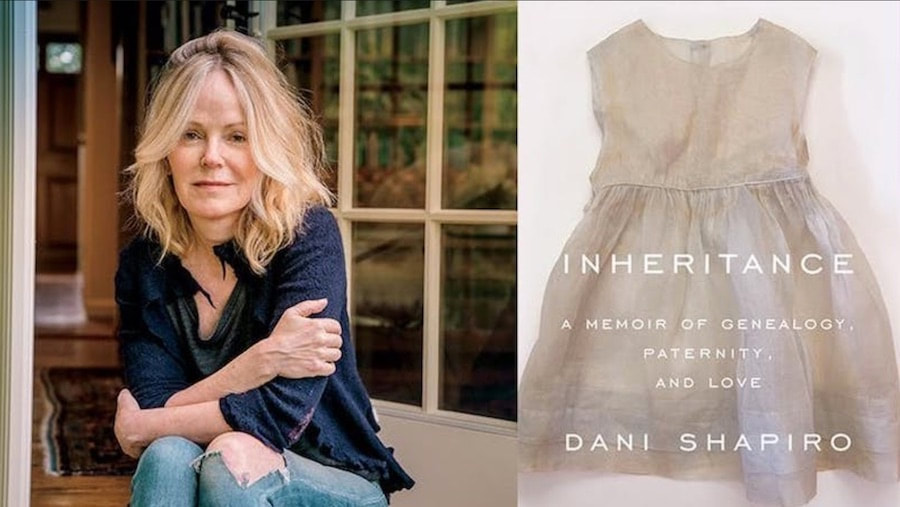 Family Secrets Can Be Revealing Few books combine elements of both beguiling mystery, yet deeply personal and effecting memoir. With writer Dani Shapiro’s latest work, all those elements are deftly woven together making for something that is insatiably readable and undeniably relatable. If you’ve never read a memoir or novel by Dani Shapiro, this latest book, “Inheritance: A Memoir of Genealogy, Paternity and Love” is a great place to start. It is not only a stellar example of her particular writing prowess and smooth, affable style, it’s also an excellent example of non-fiction that reads like a spell-binding literary novel and a gripping genetic mystery. In 2016, Shapiro’s husband, Michael nonchalantly suggested she take advantage of the fact that he was submitting DNA for heredity analysis, and submit her DNA at the same time. Without much thought, she complied expecting to be bored with the results. What would end up happening, was anything but boring. In fact the life altering results would upend her very existence as articulated by Shapiro in the book’s first chapter. She doesn’t bury the lead, she doesn’t worry about spoiler or if others do as well in discussing her story. She puts it out front and center because in “Inheritance” it’s about the journey; it’s about feeling what she feels when discovering that she’s not her father’s daughter, genetically speaking, and the deep rooted Jewish traditions that informed her world, are not actually part of her DNA. Now it is early morning and I’m in a small hotel bathroom though three thousand miles from home. I’m fifty-four years old, and it’s been a long time since I’ve been that girl. But here I am again, staring and staring at my reflection. A stranger stares back at me… The facts: I’m a woman, a wife, a mother, a writer, a teacher. I’m a daughter. I blink. The stranger in the mirror blinks too. A daughter. Over at the course of a single day and night, the familiar has vanished… On the other side of the thin wall I hear my husband crack open a newspaper. The floor seems to sway. Or perhaps it’s my body trembling. I don’t know what a nervous breakdown would feel like, but I wonder if I’m having one. When Shapiro realizes she is not her father’s biological daughter, she questions everything and every family member. This is compounded by the fact that both her parents are no longer alive to mine for family facts. She suspects who her parents were and what their motives were. Their truth, and her own identity.It is challenging for her to not jump to conclusions or pass judgement. Was she adopted? Did her mother have an affair, or was Shapiro one of the first of the “test tube babies” experiments? These and many more questions are explored by Shapiro and you the reader right along side her. As her personal investigation ensues, she somewhat easily narrows down leads to her biological father. Contacting him and launching communication would turn out to only be half the battle. As understandably hard it is for Shapiro to come to grips with her new reality, it is equally difficult for her living 78-year-old biological father to face up decisions from his past and to trust the motives of someone he never really knew existed. Although in a brief assessment of “Inheritance,” and at just under 250 pages, one might get the impression it’s a long infomercial for ancestry.com, thankfully you’d be wrong. For while her unexpected trail down a genealogy rabbit hole could convert the most DNA analysis skeptic to take the plunge or at least start watching Finding Your Roots with Henry Louis Gates, Inheritance is so much more as the subtitle suggests. It’s a gripping mystery and a profound morality tale of one woman’s search for her family’s history, their truth, and her own identity. |
Archives
January 2024
Categories |
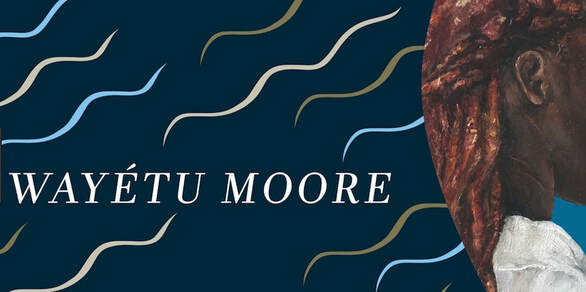
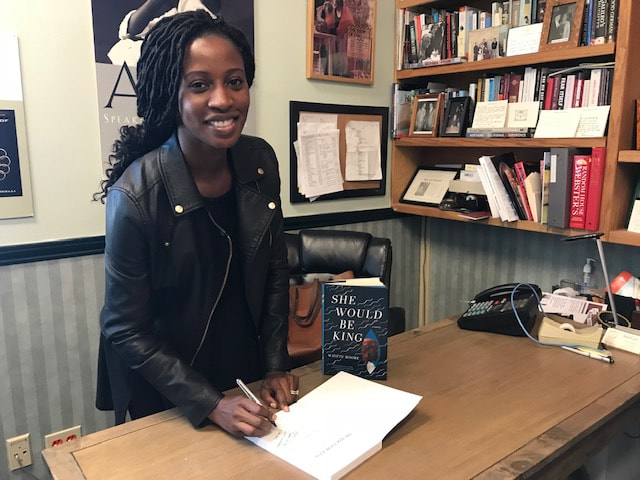
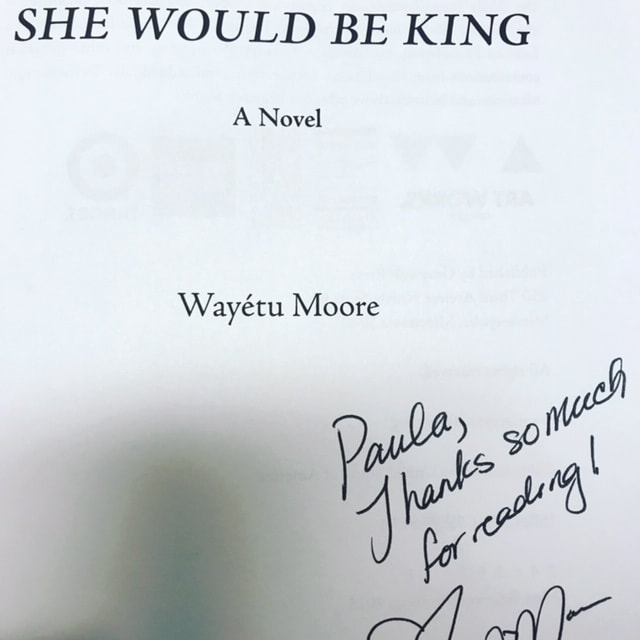
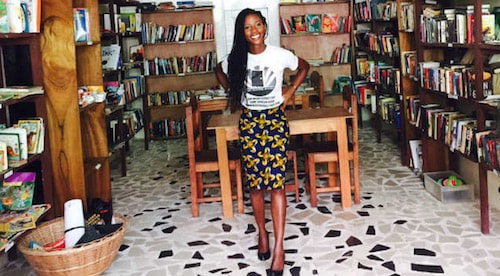
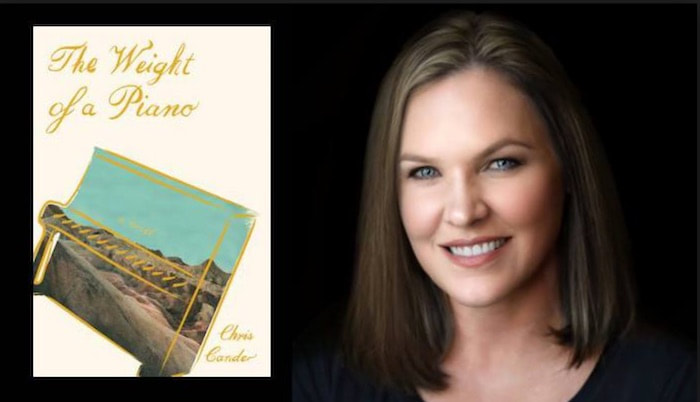
 RSS Feed
RSS Feed